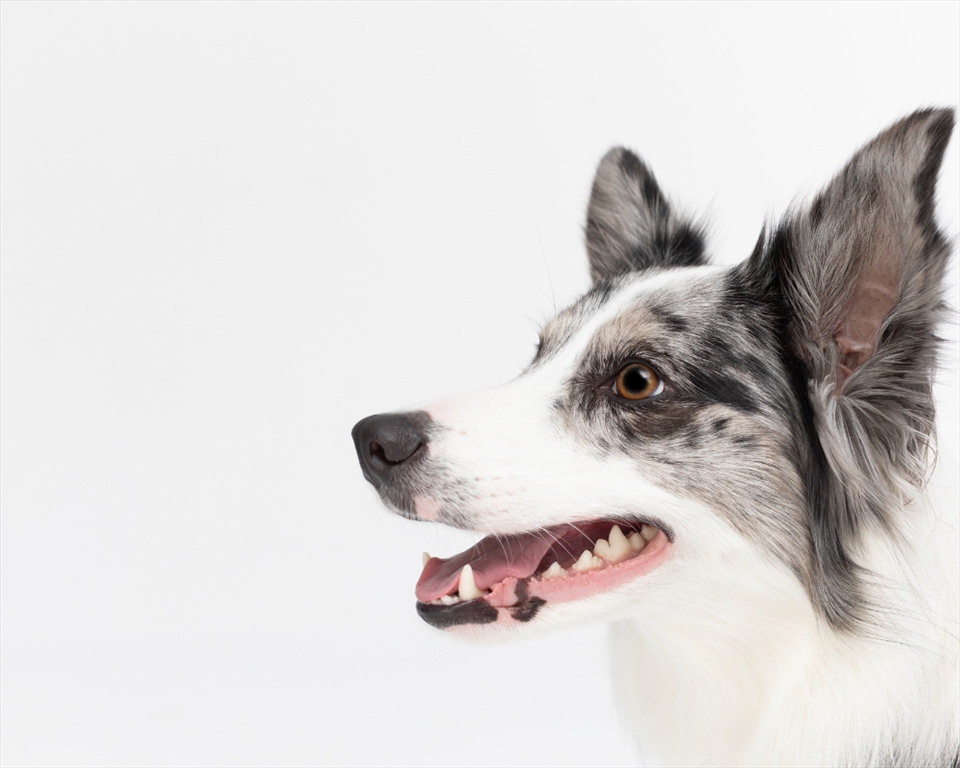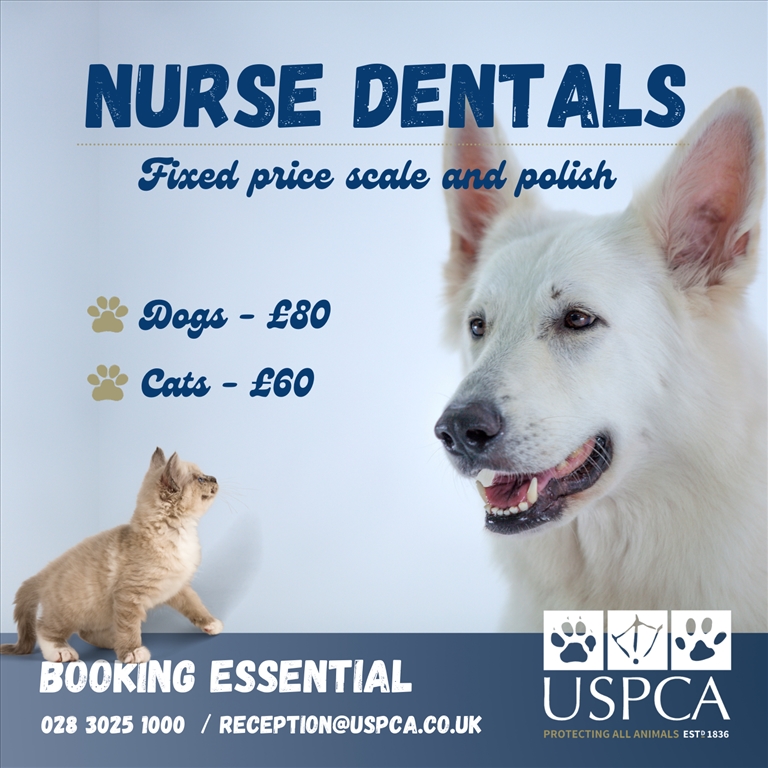Looking after your Pet’s Dental Health
 Paying attention to our pet’s dental hygiene is one of many important preventative healthcare measures we can take as pet parents to ensure our pets lead happy and healthy lives. This month, as part of National Pet Dental Health Month, we’re helping to shine a light on the importance of looking after the gnashers of our four-legged friends.
Paying attention to our pet’s dental hygiene is one of many important preventative healthcare measures we can take as pet parents to ensure our pets lead happy and healthy lives. This month, as part of National Pet Dental Health Month, we’re helping to shine a light on the importance of looking after the gnashers of our four-legged friends.
Gum disease is a health issue commonly seen here at the USPCA and if left untreated can unfortunately result in tooth loss. Some of the most common signs to look out for include bad breath, bleeding gums, yellow or brown staining on the teeth, difficulty eating, drooling, or producing excess saliva.
Whether you’ve just welcomed a new pup or kitten into your home, or are a seasoned pet owner, we’ve put together some useful tips to help you keep your pet’s teeth in check to prevent the likes of gum disease.
Regular brushing of their teeth
If possible, this should be daily or at least 2-3 times a week. Some pet owners may use conventional type toothbrushes or may prefer to use finger brushes, alongside a pet toothpaste. The USPCA Pet Supplies Shop has a great range of these dental products in store along with oral care water additives to help break down plaque and ensure a fresh breath.

Understand the importance of diet in pet dental health
There are many foods and treats out there that will help reduce the build up of plaque and prevent gum disease.
Book routine dental examinations
During these check-ups your veterinary clinic will carry out an examination to make sure your dog’s mouth is nice and healthy. To tackle the build up of plaque it is best for your pet to undergo a routine scale and polish to keep their pearly whites gleaming and healthy. The USPCA veterinary clinic is currently offering fixed price nurse dentals for dogs and cats which can be booked via 028 3025 1000.
Maintaining good dental hygiene may not be at the top of your pet’s list of fun activities but it’s important to be patient with them and make it part of their daily routine if possible. Some important steps to consider include:
- Introducing the toothbrush at a young age – when our pets are in the earliest stages of their lives, they are still identifying their routine and are being introduced to many different areas of pet life. Starting early can make daily brushes and vet dental check ups much easier later in life.
- Progression is key – you may not be able to jump right in with toothbrush when caring for your pet’s teeth and instead will have to take baby steps. This could include simply starting with your pet being used to you examining their mouth and slowly progressing to the introduction of a traditional toothbrush or smaller finger brush.
- Start off small – as we mentioned, your pet may appreciate the baby steps. When starting your pet’s dental hygiene journey, it is recommended to keep the sessions short in the beginning and be gentle so they can get used to the experience. Also reward them with treats for good behaviour and provide them with verbal and physical reassurance throughout if they are slightly anxious.
- Be patient with your four-legged friend – it’s all about time and building up that trust with your pet. In good time, your pet should hopefully see this as just another aspect of his or her daily routine, in amongst lots of play time, snoozing and treats!
If you have any concerns regarding your pet’s dental hygiene, please make an appointment with our veterinary team by calling 028 3025 1000.
Back








